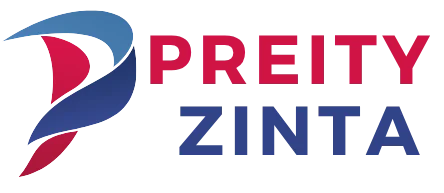Table of Contents
ToggleUnlocking the power of words can feel like discovering a secret treasure chest. Imagine impressing friends with your dazzling vocabulary or dazzling your boss with articulate reports. Vocabulary building isn’t just for the word nerds; it’s a game changer for anyone looking to elevate their communication skills and sound like a genius—without the lab coat.
Every new word learned is like adding a shiny new tool to your toolbox. Whether it’s for acing that big presentation or simply dazzling your dinner guests, expanding your vocabulary opens doors to new opportunities. So why not embark on this exciting journey? It’s time to spice up your language and unleash your inner wordsmith. After all, who wouldn’t want to sound smarter while casually dropping “serendipity” into conversation?
Importance Of Vocabulary Building
Vocabulary building plays a crucial role in effective communication. Strong vocabulary enhances the ability to express thoughts clearly and precisely. Understanding a wide range of words empowers individuals to articulate ideas confidently in various settings, including professional and social environments.
Increased vocabulary contributes to better comprehension. Readers with a robust vocabulary grasp complex texts with ease, leading to improved academic performance and critical thinking skills. Greater vocabulary fosters engagement as conversations become more meaningful and dynamic.
Impressive vocabulary can positively influence perceptions. People often view articulate speakers as more knowledgeable and credible. They tend to command attention during presentations and discussions, making vocabulary a vital asset in professional growth.
Additionally, vocabulary building aids in personal expression. Individuals can convey emotions and nuances more effectively, making their writing and speech more persuasive. Effective communication creates opportunities for networking and relationship building.
Beyond professional benefits, an enriched vocabulary enhances personal enjoyment of language. It encourages exploration of literature, poetry, and other forms of art, allowing for deeper appreciation and understanding.
Incorporating vocabulary-building strategies leads to long-term advantages. Regular practice through reading, engaging in conversations, and utilizing language apps strengthens word retention. Adopting these methods leads to continual improvement, fostering lifelong learning.
Investing in vocabulary development is an investment in overall communication skill enhancement. Individuals who prioritize vocabulary building often experience greater professional and interpersonal success.
Effective Strategies For Vocabulary Building
Building a strong vocabulary involves employing various effective strategies. Each approach plays a vital role in enhancing language skills.
Reading Widely
Reading widely exposes individuals to diverse words and contexts. Books, magazines, and articles from various genres provide rich vocabulary sources. Encountering terms in different settings aids retention and understanding. Engaging with both fiction and nonfiction materials helps relate new words to real-life scenarios. Transitioning from one genre to another broadens lexical range significantly.
Using Flashcards
Using flashcards offers a practical method for memorizing new vocabulary. These simple tools allow individuals to write words on one side and definitions or examples on the other. Revisiting flashcards regularly reinforces memory retention effectively. By incorporating visuals or synonyms, users create a richer learning experience. Furthermore, technology enhances this method through various mobile applications designed for vocabulary building.
Engaging In Conversations
Engaging in conversations provides ample opportunities to practice vocabulary actively. Discussions with friends, family, or colleagues can introduce unfamiliar words. Asking questions or sharing thoughts inspires genuine dialogue, allowing for word usage in context. Actively participating in group discussions encourages individuals to articulate their ideas clearly. Practicing with different audiences enhances adaptability and boosts confidence in vocabulary usage.
Tools And Resources For Vocabulary Building
Utilizing specific tools and resources can significantly enhance vocabulary development. Various options cater to different learning styles.
Mobile Apps
Mobile apps provide convenient, accessible ways to learn new words. Popular choices include Anki, Quizlet, and Vocabulary.com, which use flashcards and quizzes to strengthen word retention. These platforms often incorporate gamification elements, making learning engaging and enjoyable. Additionally, many apps offer personalized learning paths, ensuring that individuals focus on words that challenge them the most.
Online Courses
Online courses offer structured methods to expand vocabulary. Platforms like Coursera, Udemy, and edX feature courses designed by experts in linguistics and communication. Participants can explore specific themes or topics, giving context to vocabulary learning. Many courses include interactive components, such as quizzes and assignments, promoting active learning and retention. Learning at one’s own pace accommodates busy schedules and more individualized study.
Vocabulary Websites
Vocabulary websites serve as valuable resources for self-paced learning. Websites like Merriam-Webster, thesaurus.com, and Vocabulary.com provide comprehensive definitions, synonyms, and usage examples. Accessing these sites encourages daily practice, often featuring word of the day options to ensure consistent exposure. Furthermore, many platforms include interactive games and challenges to make learning enjoyable and competitive.
Challenges In Vocabulary Building
Vocabulary building presents several challenges. Individuals often encounter common obstacles that can impede progress in expanding their word knowledge.
Common Obstacles
Limited exposure to diverse vocabulary can restrict learning opportunities. Many people read only specific genres, which may not introduce them to new words. Memorizing definitions without practicing usage often leads to forgetfulness. Furthermore, a lack of confidence may discourage individuals from using newly learned words in conversation. Time constraints also prevent regular engagement with vocabulary-building activities, making it difficult to develop a robust word bank.
Overcoming Difficulties
Consistent reading across various genres exposes individuals to different contexts and words. This strategy enhances familiarity and builds contextual understanding. Utilizing flashcards can aid in memorization with frequent review sessions. Embracing conversation practice encourages the real-world application of vocabulary. Seeking support through study groups or language partners helps nurture confidence and provides opportunities for feedback. Prioritizing vocabulary apps can also facilitate daily practice, ensuring a steady flow of new words and phrases.
Building a strong vocabulary is a transformative journey that opens doors to enhanced communication and personal expression. By actively engaging with words through reading and conversation, individuals not only enrich their language skills but also boost their confidence in various settings.
Utilizing modern tools and resources makes vocabulary expansion more accessible and enjoyable. Embracing this process leads to greater comprehension and critical thinking, ultimately paving the way for professional and personal success.
Investing time in vocabulary building is an investment in oneself, fostering a deeper appreciation for language and its power to connect people. With dedication and the right strategies, anyone can unlock the full potential of their communication skills.







